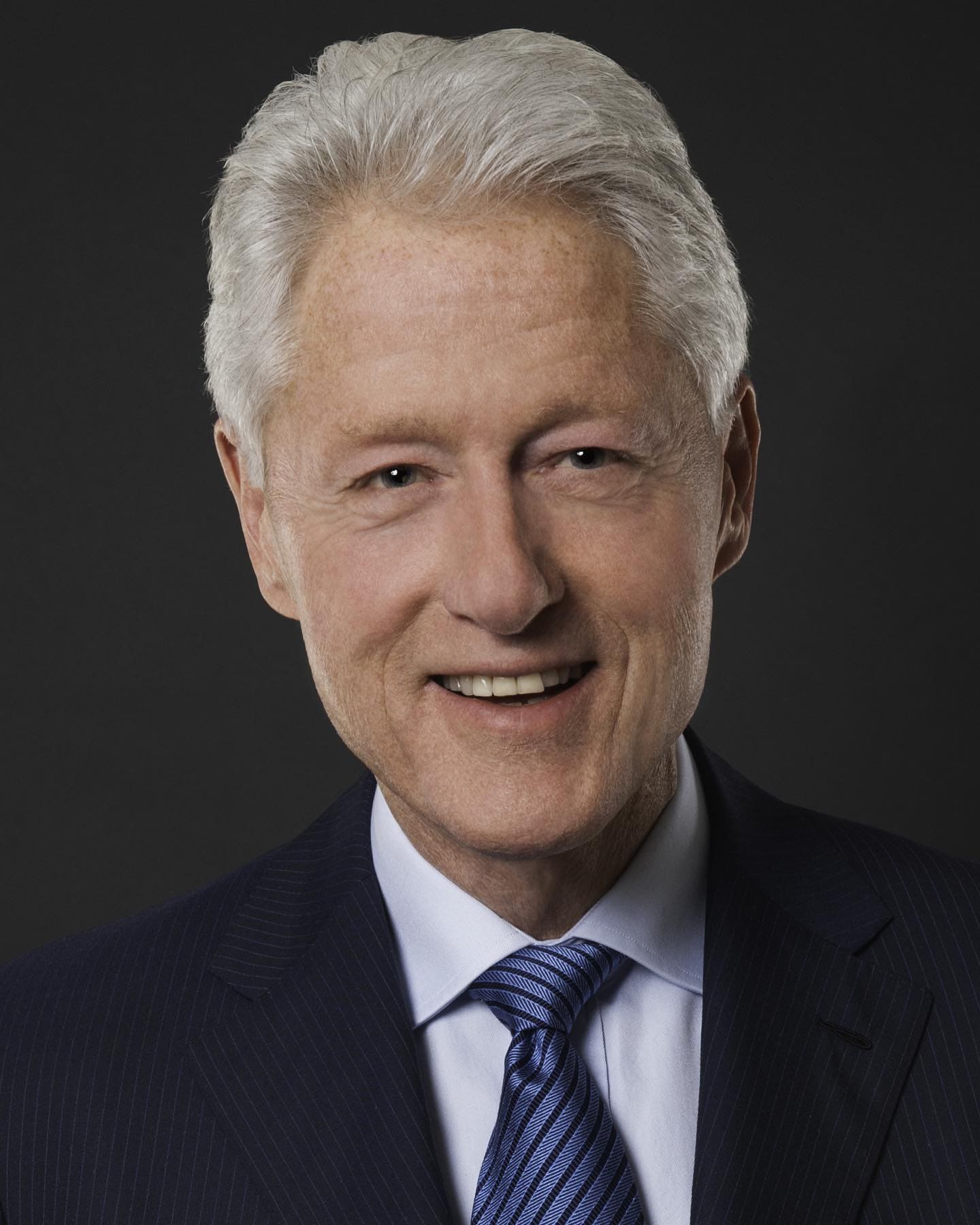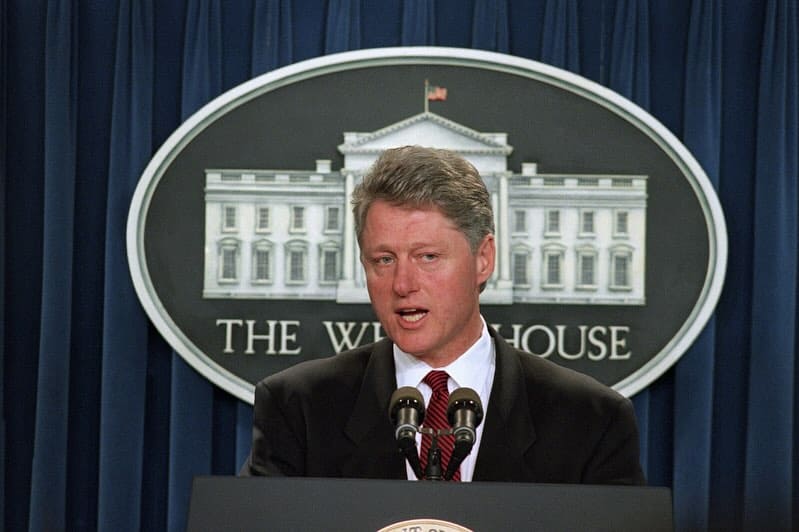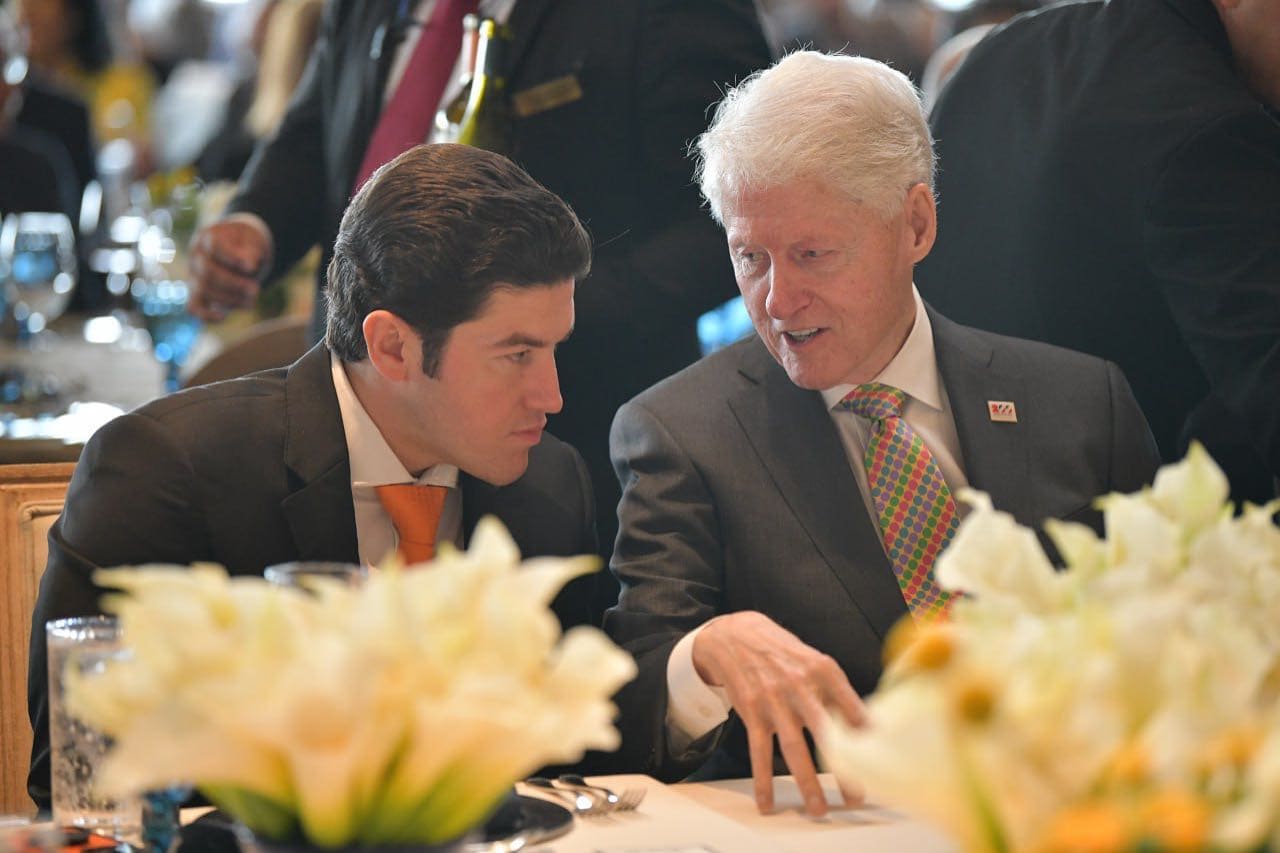18 powerful lessons from Bill Clinton’s scandal era that reveal insights into leadership, crisis management, and personal reinvention. Learn how Bill Clinton’s resilience and strategic communication shaped his legacy and what every leader can take away from his journey.
1. Public Perception Is Everything in Politics

During the height of the Monica Lewinsky scandal, Bill Clinton maintained remarkably high approval ratings—hovering around 65–70% even as impeachment loomed. How? Through strategic public appearances, bipartisan economic initiatives, and a calm, composed media presence. Bill Clinton understood that public trust is more tied to perception than legal nuance. Americans, fatigued by the political drama, seemed to separate Clinton’s personal misconduct from his presidential duties. This demonstrates a timeless truth in public life: optics often outweigh substance.
In business, politics, or personal branding, it’s not just what you do—but how it’s framed, communicated, and received. Bill Clinton’s ability to compartmentalize the scandal and focus on the economy helped redirect attention. Leaders today can learn that reputation management is ongoing, and proactive messaging during crises can help mitigate long-term damage.
2. Scandals Don’t Always End Careers
Conventional wisdom says a major scandal destroys careers—but Clinton’s story defies that. After surviving impeachment, Bill Clinton left office with a 66% approval rating, the highest for any outgoing president in modern history. Post-presidency, Bill Clinton launched the Clinton Foundation, authored best-selling books, and became a respected figure in global humanitarian circles. Bill Clinton’s ability to pivot from disgrace to diplomatic success is a lesson in long-game thinking. Scandals may pause momentum, but they don’t have to end a journey.
Bill Clinton’s reinvention underscores the importance of strategic planning, humility, and consistent public service. For entrepreneurs, executives, or politicians, the takeaway is clear: focus on rebuilding credibility through actions, not apologies alone. Reputation can recover if you’re willing to put in the work and redirect your narrative toward value creation and impact.
3. The Power of Strategic Communication
Bill Clinton’s infamous line—“I did not have sexual relations with that woman”—was deliberately vague. It became a cultural touchstone, criticized for evasiveness but praised by strategists for its ambiguity. Later, Clinton’s televised apology was carefully structured, showing controlled remorse without conceding too much legal ground. Bill Clinton’s communication style throughout the scandal was precise, lawyerly, and often rehearsed.
This highlights how communication during crises must be deliberate. Whether addressing employees, stakeholders, or the public, messaging must reflect legal awareness, emotional tone, and strategic intent. Bill Clinton’s team understood the legal implications of each word, balancing sincerity with self-preservation. Today, businesses facing PR crises often rely on crisis communication experts to avoid missteps that could worsen public perception. The Clinton era showed how powerful words—and the timing of them—can shape outcomes.
4. Charisma Can Be a Political Shield
Bill Clinton’s natural charm played a crucial role in softening the blow of the scandal. He was known for making individuals feel seen and heard, whether in town halls or one-on-one conversations. Even amid personal and political turmoil, Clinton’s likability often defused criticism. He was frequently described as someone who “feels your pain”—a phrase that became symbolic of Bill Clinton’s empathetic leadership style.
His ability to project sincerity allowed many supporters to separate Bill Clinton’s personal flaws from his political contributions. This speaks volumes about the power of emotional intelligence and charisma in leadership. In every industry, personal warmth and relatability can protect reputations during downturns. While charisma alone won’t erase a scandal, it can humanize a leader enough to earn second chances.
5. Media Drives the Modern Political Narrative
The Bill Clinton scandal exploded in the media just as 24-hour cable news channels like CNN and emerging online outlets began dominating news cycles. The media’s relentless coverage not only informed the public but also intensified pressure on lawmakers to act. Bill Clinton’s situation became less about legal wrongdoing and more about the narrative shaped by soundbites and headlines.
He became the subject of late-night jokes, op-eds, and panel discussions across every outlet. This era marked the transformation of media from observer to participant in political outcomes. For modern leaders, this teaches the importance of proactive media engagement. Ignoring a media storm won’t make it go away. Instead, shaping your own narrative through transparency, press relations, and digital strategy is key to weathering public scrutiny.
6. Accountability Cannot Be Avoided Forever

Initially, Bill Clinton denied the affair, but as evidence mounted—including Monica Lewinsky’s testimony and the infamous blue dress—Bill Clinton was forced to admit to the misconduct. The delay in taking responsibility eroded trust and prolonged the media firestorm. Eventually, Clinton faced legal consequences, including a five-year suspension of his law license. This sequence of events illustrates that truth eventually emerges—and accountability follows.
Leaders who delay ownership of mistakes often face harsher judgment than those who address issues promptly. Whether in politics or corporate leadership, facing consequences early can limit reputational fallout. Bill Clinton’s eventual admission provided some closure, but earlier transparency might have spared the country and himself from prolonged tension. In short: accountability delayed is not accountability denied—but it’s often more painful.
7. Impeachment Is a Political Tool, Not Just a Legal One
Though impeachment is rooted in the U.S. Constitution, the proceedings against Bill Clinton revealed its deeply political nature. Republicans pushed hard to remove Bill Clinton, while Democrats argued the charges—perjury and obstruction of justice—did not justify ousting a sitting president. The Senate’s ultimate acquittal wasn’t purely about evidence; it reflected party loyalty, public opinion, and political strategy. This highlights how legal tools in politics are often wielded with partisan intent. Leaders must understand that the legal system can become entangled with power plays. For citizens, Clinton’s impeachment serves as a case study in how laws can become battlegrounds for ideological conflict, not just justice.
8. Relationships and Loyalty Are Tested in Crisis
The most scrutinized relationship during Bill Clinton’s scandal was between him and Hillary Clinton. Her decision to stay in the marriage sparked national debate. Some saw it as strength and loyalty; others questioned the motives. Hillary described the period as one of deep personal pain, yet she stood by Bill Clinton in public, even during impeachment hearings. This revealed how crises can redefine relationships, both personal and professional.
In leadership, your inner circle—partners, advisers, allies—can either abandon or support you when challenges arise. Bill Clinton’s survival partly depended on loyal allies in Congress and within his own family. The lesson? Build strong, principled relationships long before crisis hits. Because when it does, those connections are either your safety net—or your undoing.
9. Adversity Builds Global Gravitas
Following his presidency, Bill Clinton transformed from a scandal-ridden figure into a globally respected statesman. His post-presidency work, especially through the Clinton Foundation, has impacted global health, climate change, and economic development. Bill Clinton’s ability to leverage adversity into a platform for positive change is a testament to reinvention through service. Despite intense criticism during his presidency, Bill Clinton’s efforts to address worldwide challenges reshaped his legacy. This teaches leaders that setbacks don’t have to define their entire journey. Instead, using difficult experiences as catalysts for meaningful impact can rebuild credibility and expand influence on the world stage.
10. Privacy Is a Myth for Public Figures
The Bill Clinton scandal proved that in modern politics, privacy is practically nonexistent. Every detail—from personal emails to intimate relationships—became public fodder. This was an early indication of the information age’s power to erode personal boundaries, especially for public figures like Bill Clinton. Leaders today operate in an environment where transparency is demanded, and private actions are scrutinized endlessly. The lesson here is clear: expect and prepare for transparency. Public figures must adopt cautious communication strategies and accept that private matters may become public. This dynamic emphasizes the importance of integrity not just in public, but in personal conduct as well.
11. Empathy and Humanity Can Rebuild Trust
During the height of the scandal, Bill Clinton’s speeches often included emotional appeals—showing remorse, asking for forgiveness, and expressing understanding of public disappointment. His charisma helped him connect with audiences on a human level, reminding them of his shared vulnerabilities. This use of empathy proved powerful in mitigating some negative feelings. The lesson is that authentic emotional engagement can restore damaged relationships. Whether in politics or business, addressing people’s feelings and demonstrating genuine concern is key to regaining trust after mistakes. It’s not enough to fix the facts; leaders like Bill Clinton must also heal the emotional rifts caused by conflict.
12. Legal Outcomes Don’t Equal Moral Vindication

Although Bill Clinton was acquitted by the Senate, many Americans remained skeptical about his personal ethics. This distinction between legal innocence and moral judgment highlights a critical reality: winning in court or politics doesn’t always restore public confidence or personal honor. Leaders must recognize that moral authority comes from consistent integrity over time, not just legal victories. In an era of social media and heightened scrutiny, public opinion can be unforgiving even if the law clears you. This lesson encourages ongoing ethical behavior and transparency as pillars for lasting reputation.
13. Leadership Requires Emotional Intelligence
Bill Clinton was praised for his ability to read rooms, manage emotions, and respond to constituents’ needs—traits now recognized as emotional intelligence (EQ). His political resilience during the scandal era was deeply tied to this skill, helping him navigate complex interpersonal dynamics even under immense pressure. Bill Clinton’s EQ allowed him to build rapport and inspire loyalty, even when facing personal and professional turmoil.
This demonstrates that emotional intelligence is essential for effective leadership. Leaders today must cultivate self-awareness, empathy, and social skills to manage crises, connect with people, and maintain influence. Bill Clinton’s example shows that technical skill alone isn’t enough; emotional savvy is often the key to survival and success.
14. The Scandal Machine Can Overshadow Real Achievements
Despite Bill Clinton’s role in leading the U.S. through one of its most prosperous economic periods—with low unemployment, budget surpluses, and peace negotiations—his presidency is often remembered primarily for scandal. The media and public fixation on the Lewinsky affair overshadowed many of Bill Clinton’s policy successes. This illustrates how a single controversy can dominate public memory and narratives, sometimes unfairly eclipsing years of positive impact.
For public figures and organizations, this is a cautionary tale about the power of scandal to obscure accomplishments. Leaders must proactively communicate their successes and build diverse reputations to balance out potential negative coverage.
15. Women in Politics Face Complex Backlash
Hillary Clinton’s role during the Bill Clinton scandal sparked widespread debate about feminism, ambition, and loyalty. As a powerful woman in politics, she was scrutinized not only for her own ambitions but also for her handling of her husband’s public crisis. Hillary Clinton’s experience exposed the double standards and heightened scrutiny women face in leadership roles, especially when their personal and professional lives intersect with controversy.
Female politicians often must navigate their own careers while contending with backlash linked to their partners’ actions. Bill Clinton’s scandal illuminated these gender dynamics, emphasizing the need for greater awareness and support for women breaking barriers in politics.
16. Your Past Always Catches Up
Before the Lewinsky scandal, Bill Clinton’s past was already dotted with rumors of infidelity and questionable behavior from his Arkansas days. These earlier allegations resurfaced during the investigation, intensifying scrutiny and skepticism of Bill Clinton’s character. This reflects a universal truth: past actions can have long-lasting impacts and often resurface at critical moments. Leaders must maintain consistent ethical standards throughout their careers because earlier missteps can be used against them later. Bill Clinton’s experience teaches that transparency and owning up to past mistakes early can help control the narrative rather than letting others weaponize your history.
17. Apologies Without Action Feel Hollow
Bill Clinton’s initial denials followed by later admissions drew criticism for seeming insincere or manipulative. Many believed his apologies were more strategic than heartfelt because they lacked accompanying behavioral changes or accountability measures at first. This teaches that effective apologies must be backed by tangible actions. Words alone rarely repair damaged trust. Whether in politics, business, or personal relationships, demonstrating commitment to change through concrete steps—policy shifts, restitution, or altered behavior—is crucial for genuine reconciliation and reputation repair. Bill Clinton’s eventual efforts to rebuild trust highlight this important lesson.
18. Reinvention Is Always Possible

Perhaps the most inspiring lesson from Bill Clinton’s scandal era is the potential for reinvention. After his presidency, Bill Clinton dedicated himself to global philanthropy and diplomacy, restoring much of his public goodwill. His work with the Clinton Foundation, disaster relief efforts, and advocacy on global issues transformed his public persona from scandal-plagued politician to respected elder statesman. Bill Clinton’s journey shows that redemption and growth are achievable through consistent, meaningful effort. No matter how public the fall, reinvention through purposeful action and service can reclaim your narrative and legacy. This enduring lesson offers hope and guidance to anyone seeking to recover from setbacks.
Conclusion: Enduring Lessons From Bill Clinton’s Scandal Era
Bill Clinton’s scandal era remains one of the most scrutinized and complex periods in modern American politics. Yet, beyond the controversy lies a treasure trove of lessons about leadership, communication, resilience, and reinvention. Bill Clinton’s ability to navigate intense public scrutiny, maintain political support, and ultimately rebuild his legacy teaches us that even in the darkest moments, there is potential for growth and redemption.
Whether you’re a leader, entrepreneur, or simply interested in political history, Bill Clinton’s story underscores the power of strategic thinking, emotional intelligence, and accountability. Embracing these lessons can help anyone weather their own storms and emerge stronger on the other side.
Frequently Asked Questions (FAQs)
Q1: What was Bill Clinton’s scandal about?
Bill Clinton’s scandal centered around his affair with White House intern Monica Lewinsky, leading to impeachment charges of perjury and obstruction of justice, though he was ultimately acquitted by the Senate.
Q2: How did Bill Clinton handle the scandal publicly?
Bill Clinton used strategic communication, blending denial, vague language, and later, a public apology to manage public perception while maintaining focus on his presidential duties.
Q3: What impact did the scandal have on Bill Clinton’s presidency?
Despite the scandal and impeachment, Bill Clinton left office with high approval ratings and is remembered for significant economic achievements and global diplomacy.
Q4: How did Bill Clinton’s scandal affect Hillary Clinton?
Hillary Clinton faced intense scrutiny during the scandal, sparking discussions about loyalty, feminism, and the challenges women face in politics.
Q5: Can leaders recover from scandals like Bill Clinton did?
Yes. Bill Clinton’s post-presidency philanthropy and diplomacy demonstrate that with consistent effort, reinvention and reputation rebuilding are possible.